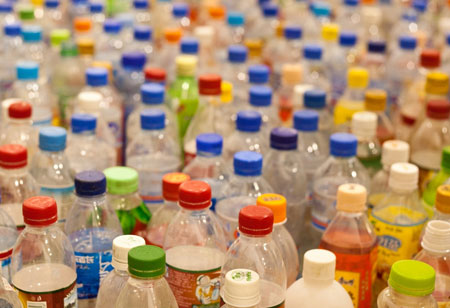THANK YOU FOR SUBSCRIBING
Minimizing Bottled Water packaging challenges
Plastic water bottles pose a high health risk to consumers as they contain a chemical called Bisphenol.

By
Apac CIOOutlook | Monday, August 12, 2019
Stay ahead of the industry with exclusive feature stories on the top companies, expert insights and the latest news delivered straight to your inbox. Subscribe today.
FREMONT, CA: Plastic water bottles pose a high health risk to consumers as they contain a chemical called Bisphenol. The chemical has been reported to cause health issues such as learning difficulties in children, obesity, structural damage to the brain, and even early puberty. Moreover, when these bottles are heated, they release chemicals into the water that cause hormonal imbalance. The Green Guide states that plastic water bottles can be safe for single use, but reuse should be avoided.
From the huge costs of the production, transportation, and handling of plastic bottles, it can be realized that the bottled water that consumers buy is pretty expensive for the water inside. In order to prepare a litre of bottled water, three litres of water is used. Only 30 percent of the used bottles are recycled, as per the data from the National Association for PET Container Resources. Municipalities sell their water to bottling companies so that the bottling companies can profit from water the local people have already paid for. According to the Ocean Conservancy, plastic water bottles are the third most common item on the beach, right after cigarette butts and food wrappers.
Check This Out: Top Food & Beverages Tech Companies
As more and more drink companies move towards environmental friendliness and change their primary packaging, bulk shipments from the bottling plant to distributors and retailers are in danger of being less stable and more susceptible to damage during transit. Companies must increasingly rely on their pallet wrapping to ensure that the product is safe.
There are some changes in plastic water bottles over the past few years; smaller caps, smaller printed labels, and lighter plastics are a few ways to reduce waste in packaging in beverage companies. Not only plastic bottles can be recyclable, but there are some other choices to produce a safer bottle with LDPE and HDPE plastic sheets.
Danone and Nestle Waters, the world's largest manufacturers of bottled water, joined the Origin Materials start-up in California to create the NaturALL Bottle Alliance, an initiative aimed at producing 100 percent sustainable plastic bottles. The Alliance intends to make it available to the whole food and beverages industry. CocaCola, Pepsico, and other major companies are developing mushroom and seaweed bottles based on plants, but these materials interfere with the production of food.
Few More Top Food & Beverages Tech Companies: Applied Data Corporation, FoodLogiQ, PlayerLync
Check Out: Semiconductor Review





